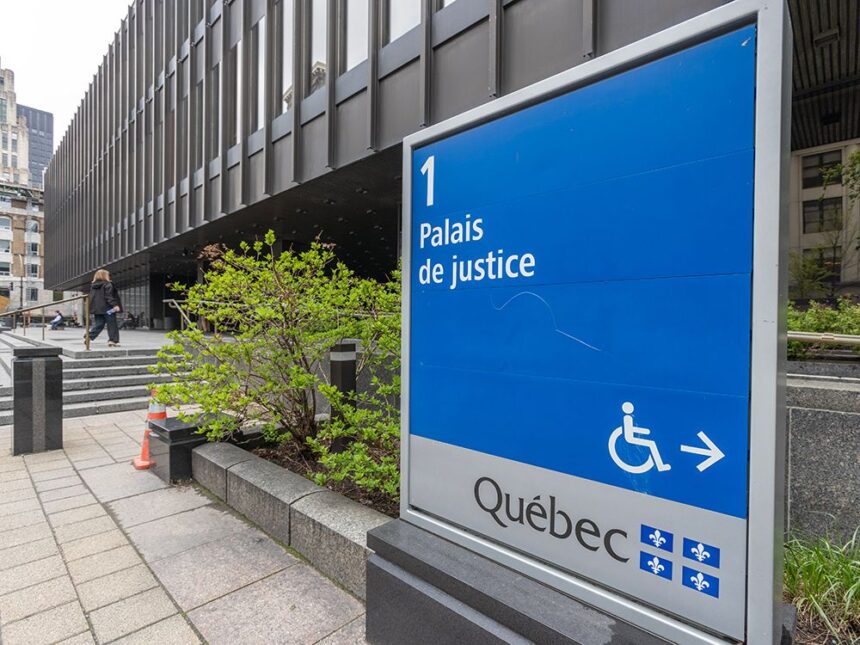Montreal has been shaken this week following the arrest of a man previously convicted in the United States for supporting Al-Qaeda, now facing charges related to bomb threats that disrupted daily life across our city. As Montrealers, we’ve grown unfortunately familiar with security alerts, but this case carries particularly troubling implications.
Momin Khawaja, 45, appeared before a Montreal court yesterday to face accusations of making bomb threats targeting multiple Jewish institutions across our city. According to court documents, Khawaja allegedly made these threats between March and April of this year, creating widespread fear throughout Montreal’s Jewish community.
“This case represents a deeply concerning development for our city,” says Benjamin Friedman, security director for Federation CJA, which represents Montreal’s Jewish community. “When threats target specific religious or cultural groups, they don’t just disrupt institutions – they create a ripple of fear throughout entire communities.”
What makes this case particularly notable is Khawaja’s history. In 2008, he became the first person convicted under Canada’s Anti-Terrorism Act for his role in a UK bomb plot. After serving time in Canada, he was later convicted in the United States for providing material support to Al-Qaeda.
Montreal police spokesperson Caroline Chèvrefils confirmed that the investigation involved coordination between the SPVM, the RCMP, and several international security agencies. “Cases with potential ties to terrorism require exceptional cooperation across jurisdictional boundaries,” she explained during yesterday’s press briefing.
I witnessed firsthand the impact of these threats while reporting on the emergency evacuations at a Jewish community center in Côte-des-Neiges last month. Watching elderly community members being hurriedly escorted from the building while children from the daycare were led hand-in-hand to safety underscored the real human cost of such threats.
According to Statistics Canada, Montreal has seen a troubling 43% increase in hate-motivated incidents targeting religious communities over the past year. These bomb threats occurred against this backdrop of rising tensions.
“Even when no explosive device is found, these threats achieve their intended purpose – creating fear and disruption,” explains Dr. Isabelle Lantagne, professor of security studies at Université de Montréal. “The psychological impact on targeted communities can persist long after the immediate threat is resolved.”
What I find particularly striking about this case is how it highlights the complex challenges facing our city’s diverse communities. Montreal has long prided itself on being a multicultural mosaic where different religious and cultural groups coexist peacefully. Cases like this test that ideal.
The Montreal Courthouse was under heightened security yesterday during Khawaja’s appearance. Judge Marie-Josée Hogue denied bail, citing both the severity of the allegations and the accused’s history of terrorism-related convictions.
Crown prosecutor Dominique Véronneau emphasized the seriousness with which authorities are treating these threats. “Making bomb threats is not merely a nuisance – it’s a criminal act that diverts emergency resources and creates genuine public fear,” she stated after the hearing.
Defense attorney Michel Doucet declined detailed comment but indicated his client intends to plead not guilty to all charges.
For Montreal’s Jewish community, these threats come during an already tense period. David Ouellette from the Centre for Israel and Jewish Affairs in Montreal told me yesterday, “Our community has shown remarkable resilience, but we shouldn’t have to become accustomed to living under threat.”
As our city processes these events, questions emerge about the effectiveness of rehabilitation programs for those previously convicted of terrorism offenses. Security experts point to the challenges of monitoring individuals after their release from custody, particularly given the borderless nature of extremist ideologies in the digital age.
Montreal Mayor Valérie Plante addressed these concerns at City Hall yesterday, reassuring residents that “the safety of all Montrealers, regardless of faith or background, remains our highest priority.”
The case continues next month with preliminary hearings scheduled for June 15. Meanwhile, security remains heightened at Jewish institutions across Montreal – a visible reminder of threats that most Montrealers would prefer to believe belong to distant headlines rather than our own beloved city.







